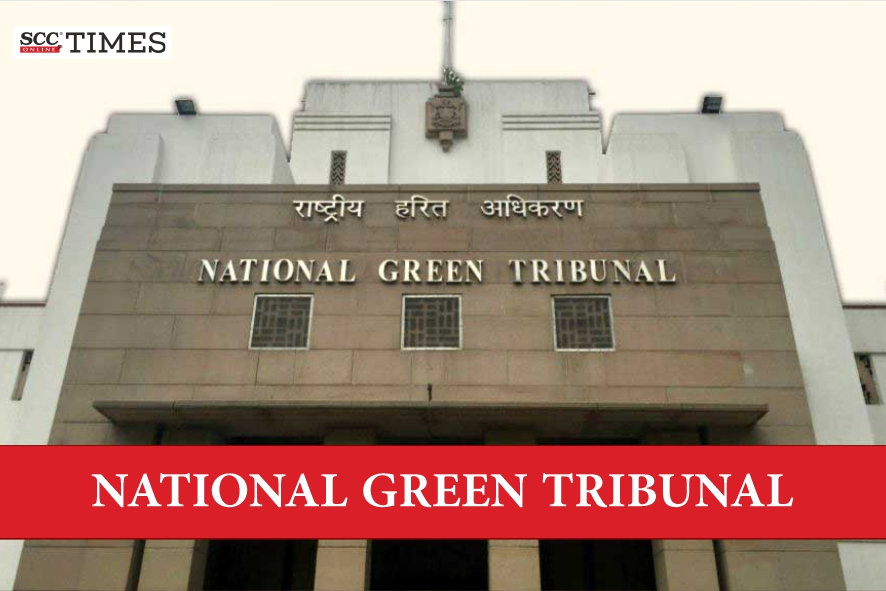National Green Tribunal: In an original application, raising substantial environmental issues relating to the felling of approximately 700 trees for road construction and the construction of a cricket stadium within the catchment area of Bhoj Wetland, a Ramsar site of international importance in Bhopal, the Division Bench of Sheo Kumar Singh, Judicial Member and Dr. Afroz Ahmad, Expert Member allowed the application and formed the Joint Committee to enquire into the matter. The Tribunal gave a slew of directions to the Committee.
Background
The Bhoj Wetland, a Ramsar site of international importance, comprises the Upper and Lower Lakes in Bhopal. It holds significant ecological value and is governed by Wetland Rules, 2017, (Rules, 2017) which were enacted to protect and preserve such vital ecosystems. The Madhya Pradesh Government, through its Environment Department, issued an order in 2022 to implement these rules for the Bhoj Wetland. The applicant’s case was that the construction site lies in proximity to the Bhoj Wetland, subjecting it to the regulations intended to safeguard this critical ecological asset. The applicant’s concern was that illegal and uninterrupted construction activities within the catchment area of the Bhoj Wetland will have lasting adverse impacts on the ecology and biodiversity of the Wetland. The stadium construction allegedly lacked requisite TNCP approval and impinged on land earmarked for a proposed lake. Further, large-scale tree felling was carried out without adherence to the Madhya Pradesh Vrikshon Ka Parirakshan (Nagariya Kshetra) Adhiniyam, 2001, (2001 Adhiniyam) with no compensatory afforestation or statutory contributions made.
Analysis and Decision
The Tribunal relied on trajectory of case laws settling the position in environmental law aspects. The Tribunal reiterated that the right to a clean and healthy environment forms part of Article 21 of the Constitution and is supported by Articles 48-A and 51-A(g) of the Constitution of India. The Tribunal relied on M.C. Mehta v. Kamal Nath, (2000) 6 SCC 213, wherein, it was held that any disturbance of the basic environment elements, namely air, water and soil, which are necessary for “life”, would be hazardous to “life” within the meaning of Article 21 of the Constitution. The Court referred to a media reporting dated 06-05-2025 “Patrika” mentioning that 1990 greenery in the city was 66% and it was reduced to 18% in the year 2011 and further reduced to 16% in the year 2016 and 9% in the year 2018 and now it is approximately 4%.
The Tribunal stated that- a substantial issue of the environment has been raised.
Thus, after acknowledging the gravity of the situation, the Tribunal sought report on the matter issued directions to form a Joint Committee comprising:
-
One Representative from the Ministry of Environment Forest and Climate Change, integrated office at Bhopal
-
One Representative from the Central Pollution Control Board, Bhopal
-
One representative from the Addl. Chief Conservator of Forest, State of MP, Bhopal
-
One representative from the State Pollution Control Board, Bhopal
The Tribunal directed the committee to ensure:
-
Strict compliance of the 2001 Adhiniyam.
-
The Principal Chief Conservator of Forest to constitute a High Level Centrally Empowered Committee (CEC) to examine the permission and justification of cutting trees where the permission is sought for more than 25 trees within the State.
-
The Principal Chief Conservator of Forest and the DFO range to ensure the Geo tagging of all trees to be made mandatory so that accurate records of their location, type and number can be maintained. Geo tag data should be published and made available and reported to the O/o Chief Conservator of Forest.
-
There should be tree census within the State city wise and district wise to be monitored by the Principal Chief Conservator of Forest or official nominated by the PCCF.
-
The Centrally Empowered Committee before granting permission may also consider the alternative to the plan of cutting the trees which could necessitate felling of fewer number of trees or if option is available or not.
-
The Centrally Empowered Committee will also ensure compensatory afforestation to compensate for the trees that have been cut down and to ensure their survival upto five years with records and progress city wise, district wise.
-
The PCCF, State of MP to ensure that there shall not be any cutting of trees without sanction from the competent authority and necessary directions be issued at the district headquarter and in case of any cutting of trees without due permission of competent authority necessary action must be initiated promptly and immediately.
-
The Centrally Empowered Committee may also ensure the compensatory afforestation and forestation @ 10 times to 100 times to the ratio of availability of the land in the same area within a time frame.
-
It will take a minimum of 70 to 100 years to re-generate or re-create the green cover created by cutting 700 trees and thus the destruction of so many trees adversely affects the environment and life of several human beings. Accordingly, the compensation of compensatory afforestation should be in ratio to that period and ratio to the oxygen generated by the plant during the life time of the trees.
[Nitin Saxena v. Madhya Pradesh Road Development Corporation Ltd., 2025 SCC OnLine NGT 159, Decided on: 23-05-2025]
Advocates who appeared in this case :
For the applicant: Mr. Harpret Singh Gupta, Adv. along with Mr. Pratipal Singh Gupta, Adv. Mr. Shubham Rawat, Adv. Ms. Nancy Chaturvedi, Adv. Mr. Srajan Jain, Adv.



